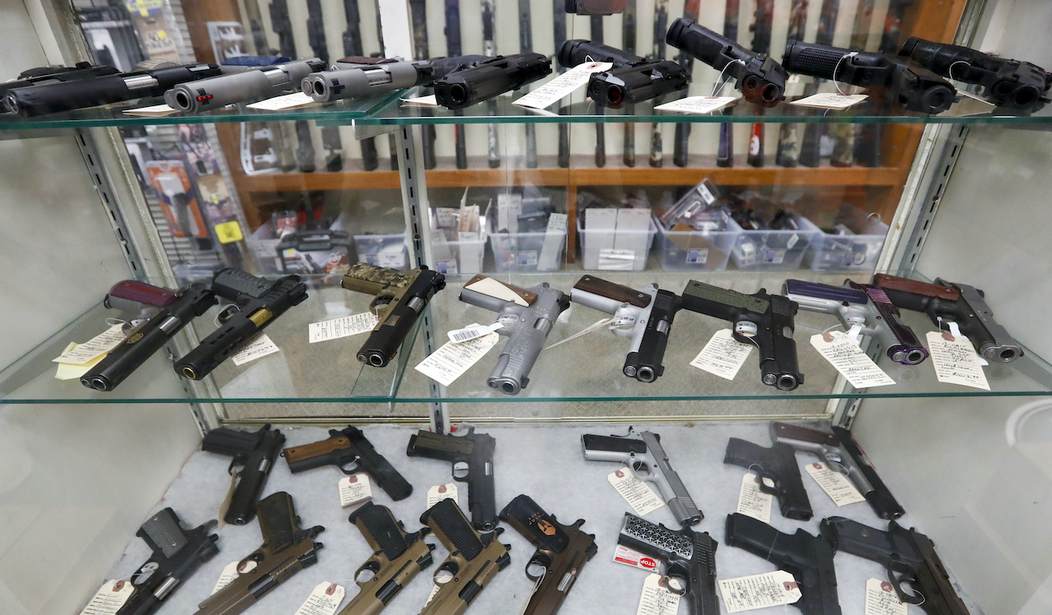For the second year in a row, Portland police are reporting substantial reductions in shootings across the city, but one local gun control group is ignoring the data while blaming federally licensed firearm dealers for the increase in shootings and homicides during the past five years.
According to the Portland Police Bureau, there were 803 fatal and non-fatal shootings reported in 2024, down from 1,035 in 2023 and 1,309 in 2022. Last year's figures are still almost 100% higher than the 413 shootings reported in the city in 2019, but it's clear that things are finally starting to move in the right direction.
The Alliance for a Safe Oregon, on the other hand, claims gun-related homicide in Oregon has increased 172% over the past ten years, and the anti-gun activists are pointing the finger at the state's gun shops and firearm retailers.
It’s clear that Oregon needs to take stronger action to safeguard its communities. One vital step toward preventing gun tragedies, while respecting responsible gun ownership, would be the implementation of state-based gun dealer licensing and regulation in the 2025 Oregon legislative session, which starts this Tuesday.
As it stands, the federal government licenses and is supposed to regularly inspect gun dealers; however, the system is vastly under-resourced and lacks enforcement, allowing bad actors to operate without consequences. A federally licensed gun dealer is inspected on average once every 10 years. The result is an overflow of illegal guns in our communities, used in violent crime. Guns used in crimes are also called crime guns.
The Alliance for a Safe Oregon recently released a data report analyzing what is causing the proliferation of crime guns in Oregon. In our analysis, we found that between 2017 and 2021, law enforcement traced 74% of crime guns in Oregon to in-state dealers. On the other hand, in New Jersey, which has strong state-based licensing and regulation of gun dealers, only 18% of traced crime guns were purchased in the state.
Overall, Oregon law enforcement finds nearly three times as many crime guns per capita than New Jersey. This analysis tells us gun dealers are positioned to play a key role in preventing community gun violence.
Why focus specifically on New Jersey when there are other states that also have their own licensing and regulation of gun dealers? Illinois, for instance, has had laws similar to those proposed by the Oregon gun control group on the books since 2019. According to ATF trace data from 2023, Illinois was the #1 source for guns traced in Illinois, accounting for more than 50% of traces. That's less than the 74% reported in Oregon from 2017 to 2021, but far more than the 18% attributed to New Jersey.
There are other major issues with the ASO's analysis. According to the ATF's most recent trace data, the average time-to-trace in Oregon was 9.17 years, well below the nation average of 6.76 years. That suggests that FFLs in Oregon aren't aiding and abetting criminals by actively participating in straw buys to unsavory customers, and instead, criminals are acquiring their guns through illicit means, including theft.
It's also a misnomer to declare every firearm traced by the ATF a "crime gun." The most common reason for a firearm trace in Oregon is "firearm under investigation", followed by "possession of weapon", followed by "found gun." Those three categories combined accounted for almost 3,500 traces in 2023, compared to less than 500 traces for "weapons offenses" and homicide.
Not every gun used in a crime is traced, and not every gun that's traced has been used in a crime. The folks at the Alliance for a Safe Oregon should be aware of that, but they have a vested interest in keeping the public as clueless as possible when it comes to the details of ATF traces.
If a lack of state-level licensing for firearms dealers were truly the reason for Oregon's spike in gun-involved homicides over the past few years, we'd expect to see similar trends in the vast majority of states. Instead, after spikes in 2021 and 2021, homicides have been generally been trending down across the country over the last few years. Oregon, and Portland in particular, have been outliers in that regard.
I get why the gun control group wants to pin the blame on gun stores instead of blaming Oregon's far-left approach to criminal justice and its embrace of the Defund the Police movement, but the attempt to scapegoat FFLs should be roundly rejected by lawmakers. The state doesn't need to add another layer of red tape and a brand new bureaucracy to improve public safety. Lawmakers simply need to get back to the basics of ensuring consequences for violent crimes instead of giving far too many offenders a slap on the wrist.









Join the conversation as a VIP Member